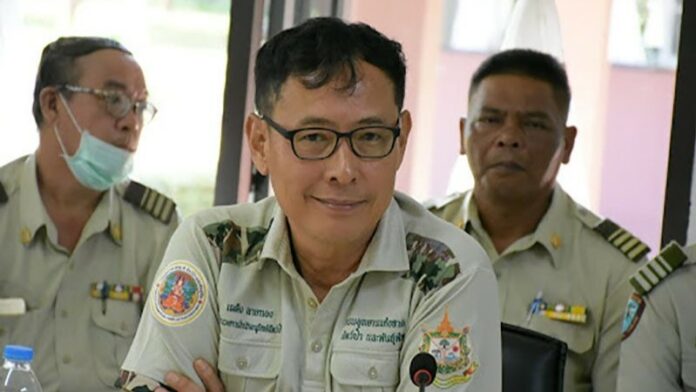Lop Buri—
On March 8th, 2024, Mr. Phadet Laithong, the director of the department’s Wildlife Conservation Office, publicly revealed that a female trader in Lop Buri hurt her hips and had her knee dislocated from a macaque attack.
The victim, publicly identified as Ms. Ariyakanta Kanchanasinmetha, 37, asked relevant agencies to compensate appropriately. However, Phadet said that the criteria for government compensation were set in case of being physically attacked by wild bulls and elephants only.
At present, macaques are protected animals but live in urban areas, causing nuisances and damaging locals’ properties. To consider the criteria for compensation in each case would prove to be difficult as it required evidence from CCTV or video indicating that a person must not harm or tease macaques first, said Phadet.
The consideration of criteria for compensation needed to be comprehensive although it could not be compared to wild bulls and elephants’ criteria which only covered one’s body.
The Thai Wildlife Conservation Office worked proactively to solve macaque problems in Lop Buri by controlling the macaque population while revoking macaques from being protected animals as some people had suggested was not an acceptable solution, stated Phadet. Humans could harm macaques to death and even export them abroad for animal experiments and consumption if their protective status was revoked, said Phadet.
It was necessary to coordinate with local residents to find a common ground to solve the overpopulation of macaques by sterilization. From 2014 to the present, more than 5,135 macaques were sterilized to reduce their population and relieve nuisances from them to locals, said Phadet.




